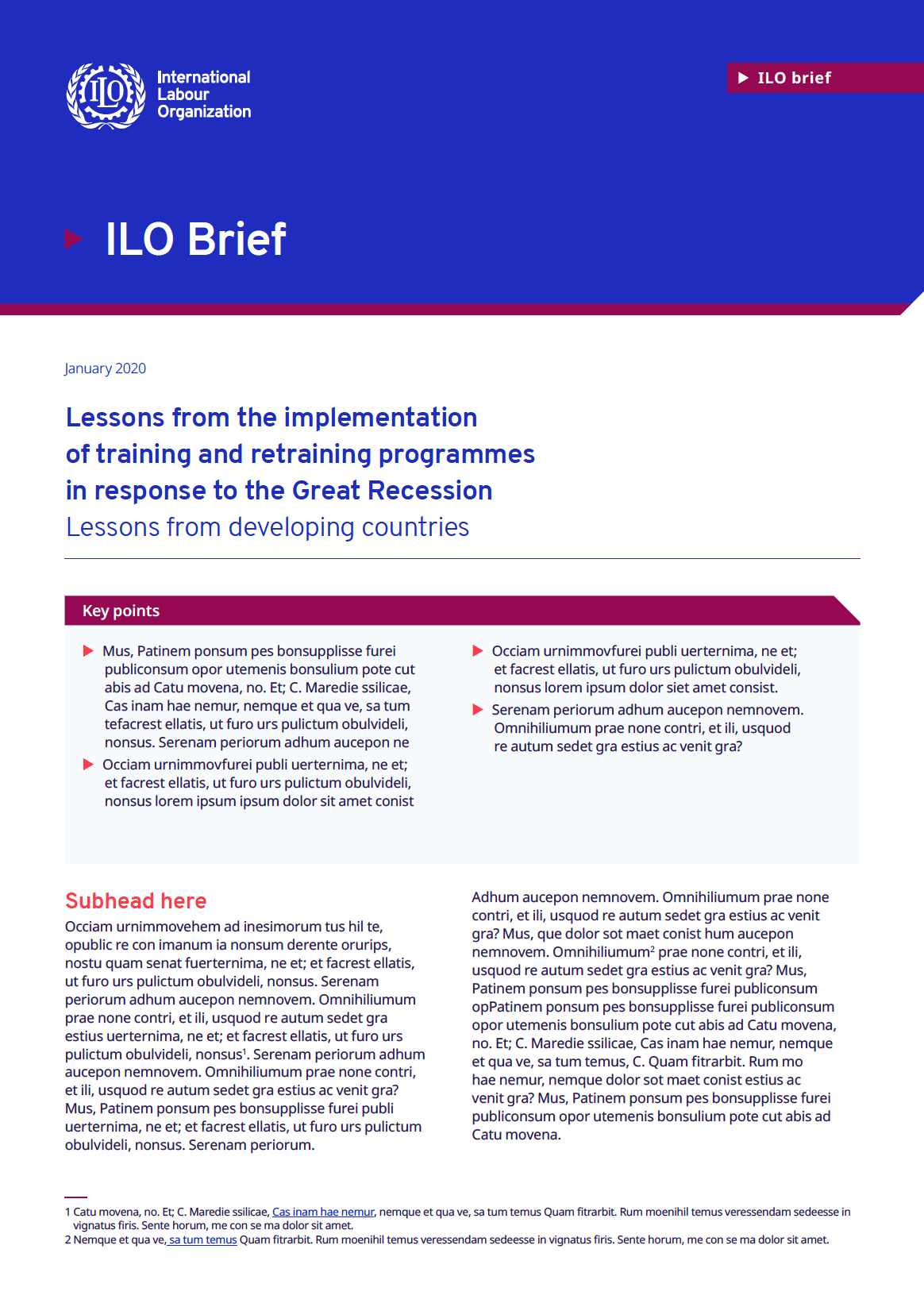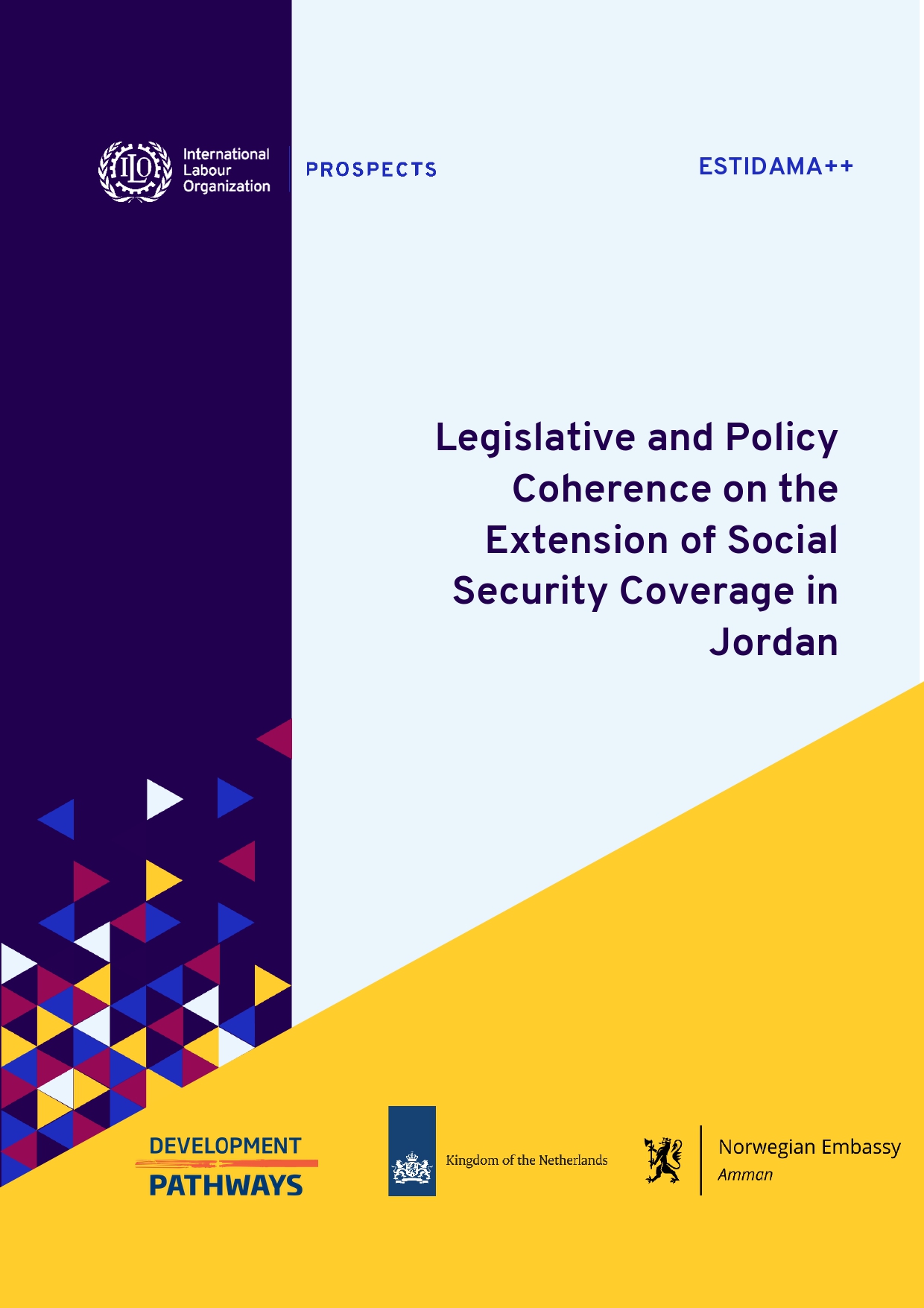Jordan
The past decade has been particularly challenging for Jordan. The spillovers of the global economic crisis in 2009 were followed by an unprecedented refugee influx caused by the war that started in 2011 in neighbouring Syria. In 2022, Jordan’s population passed the 11 million mark, reflecting a growth of 38,6 per cent over the last 10 years, with refuges and migrants constituting no less than 30 per cent of the entire population in the country.
However, this rapid and unanticipated increase in population, coupled with the ongoing economic challenges, has placed an additional pressure on the Jordanian labour market. Unemployment rose from 12.2 per cent in 2012 to 22.6 per cent in 2022 (end of quarter two). At the same time, the number of jobs created every year increased slowly, from approximately 46,058 in 2011 to 62,933 in 2021 (Department of Statistics (DoS), 2021). Alongside this gradual increase, many job vacancies remain unfilled because of the skills mismatch and working conditions that are considered undesirable. These conditions are most prevalent in non-academic technical and vocational streams. Given the rising unemployment, skills mismatch and shortage of good quality jobs, there is a great need to expand and improve TVET system and programmes across the country.
To address these challenges, the Jordanian Government has placed a very big emphasis on reforming the TVET sector in an effort to bridge the gap between education and employment and to equip young Jordanians with the skills that are most needed in the labour market. More specifically, the National Strategy for Human Resource Development (NSHRD) 2016-2025 pays particular attention to reforming TVET in Jordan. It involves strengthening the relevance of TVET, enhancing the quality of training and education in the sector, introducing private sector governance structures (e.g. Sector Skills Councils) and, finally, breaking the negative stigma around TVET. Major progress on the NSHRD has already been achieved, including the endorsement of a National Qualification Framework and the establishment of the Technical and Vocational Skills Development Commission, in addition to establishing nine national sector skills councils (four of them by ILO support), and four councils will be established with the end of the year of 2022.
Through this review, the ILO seeks to explore further opportunities to strengthen policy, legislative and institutional environments and mechanisms, working closely with host governments and other national actors and partners.
By providing a comprehensive and robust picture of the situation on the ground, the report offers actionable areas of intervention to support policy development, reform and implementation capacity of the host governments, other national and local actors, including the social partners, to enhance inclusion and protection.
Skills mismatch problems in the labour market have been widely recognized by both current literature and policymakers. Skills mismatch indicators inform policies to improve the matching between labour demand and labour supply, making labour markets more efficient and reducing the wage penalties due to over-education or other types of mismatches. The skills mismatch indicators have been measured, so far, only for a limited number of the European Training Foundation (ETF) partner countries and they are not always comparable. This report provides an update and an extension of the work which has already been done to measure skills mismatch in ETF partner countries. The analysis following the choice and the construction of skills mismatch indicators provides a timely overview of this labour market issue which will be important for governments, stakeholders, and other stakeholders to shape future labour market policies.
The ILO Skills and Lifelong Learning monthly newsletter highlights recently uploaded publications, reports, research items, videos and upcoming events on skills development and lifelong learning.
Sign up to receive the Newsletter by clicking here.



